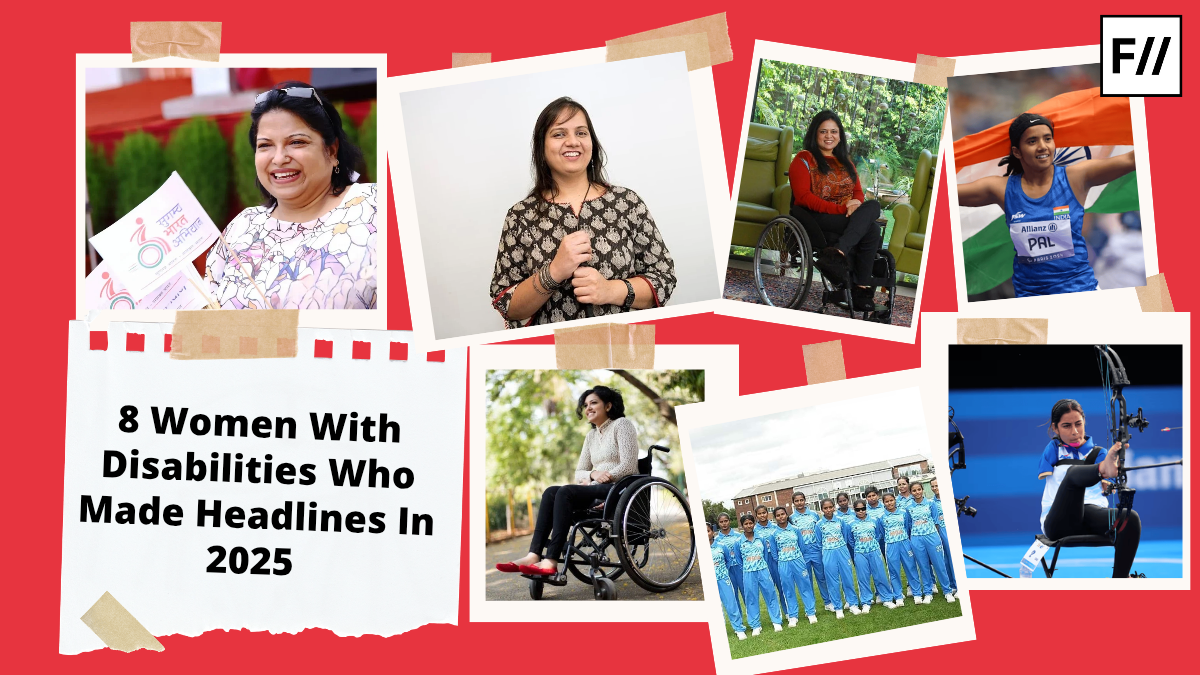I would like to start this article by stating how only about 25 percent students with disabilities have been known to afford schooling in India, as per a latest 2019 UNESCO report. With only a small percentage of students with disabilities having access to academia and higher education institutions in a developing country like India, an even smaller percentage live life with the equality and dignity they rightly deserve: students with disabilities need to fight for basic rights, starting with accessibility, even in their educational institutions: something that should come so naturally.
Also read: Taking Up Space: Disability, The Art Of Assertion & Setting Boundaries
For the longest time, I was unaware that I was allowed to ask for accessibility within academia. I thought stairs are something that I’d just have to deal with my entire life: I didn’t know about ramps.
For the longest time, I was unaware that I was allowed to ask for accessibility within academia. I thought stairs are something that I’d just have to deal with my entire life: I didn’t know about ramps. I thought I’d have to live in a world where classmates would have to help me up the stairs and that’s just how it would be. That I would have to get used to asking for help. While asking for help isn’t a bad thing, asking for help with your agency intact is something I had to learn to do. To be very honest, I never felt a sense of belongingness in any of the institutions I went to, not only because of the lack of accessible and disabled-friendly physical spaces, but also due to the lack of sensitivity towards disability beyond tokenist measures—to strike that intricate balance between helping too much or not helping at all, a dilemma that my able-bodied classmates faced whenever they met me.
A problem that many of us must have faced at some point in academia and their school lives, regardless of ability, are Mathematics teachers that are not patient enough in understanding why we don’t understand how a math problem works. As a result, a lot of us grow up to have a fear of numbers — because we (at least I) have grown up to believe that no one would be patient enough to explain each step of the math problem to me: here, accessibility extends beyond the classroom, it extends to teacher attitudes and sensitivity.
Teachers who have students with disabilities in their classrooms should educate themselves on how to make the environment more conducive to disability: the classroom environment as well as the social environment. They should familiarise other able-bodied children with disability and understand concepts such as Crip Time. Time as a universal concept was coined by able bodied folks and caters to their convenience. The concept of deadlines, competition, marks, employability caters to a capitalist, able-bodied mindset.
Because of the lack of sensitivity around disabilities within academia, reclaiming time to suit my bodily and mental health needs, giving myself time to rest and recover, or even being patient and understanding with myself when I failed to understand a basic math problem or failed to complete an assignment due to a depressive episode simply because I had a stroke when I was in fourth grade, was difficult.
I keep reiterating on Math because, the subject overwhelmed me all 22 years of my life. And now that I need to re-learn and revise basic level Math for my Master’s entrance, I remember the terror I used to feel during Math class in my school years—how I would blankly stare at the board and feel helpless as my classmates would enthusiastically answer the teacher. Math, in my opinion, has been shaped by able-bodied structures of productivity and intellectuality that evaluates ones worth on the basis of how well they understand the tricks in solving a problem and get good marks. The structural, realistic and rational Math was often a wall of stone staring back at me and my fears which the academia did little to mitigate.
Math, in my opinion, has been shaped by able-bodied structures of productivity and intellectuality that evaluates ones worth on the basis of how well they understand the tricks in solving a problem and get good marks. The structural, realistic and rational Math was often a wall of stone staring back at me and my fears which the academia did little to mitigate.
Cut to today, as I take a gap year after graduation from Delhi University, I think of the same as an informed decision. However, it is also one that made me reflect a lot: on standards of productivity, academic expectations and the sheer pressure that students face to complete their education within a certain time limit, specially women, before they’re “too old” or reach their “marriageable age”.
Taking a gap year is also a matter of privilege, being a cis-gender, privileged woman, my priorities in college certainly differed from my Dalit hostel mate’s—while my priorities involved exploring a new city, going out every weekend and finding fancy new cafes, her priorities included ensuring she continues to avail good education and survive in the cut-throat world of academia, because her family had done everything for her to get an education. They were, in fact, counting on her. Aishwarya Reddy, a student of Lady Shri Ram College, the same college I went to, died by suicide on November 2, 2020. Aishwarya and I lived only a corridor away from each other in the same hostel. Her death made me realise the glaring academic gap faced by students, especially when they are coming from marginalised backgrounds.
Also read: Taking Up Space: Navigating The Campus As A Disabled Woman
Clearly, education is a space, despite our Constitutional mandates, that is anything but an equaliser. For many of us, it is the only way out, only solution to the structural oppression they have faced for generations. Yet, the same structures often end up denying them accessibility to these resources, leaving them with no better options.
About the author(s)
Anusha Misra prefers to be called nu, identifies as a disabled, queer woman. They are a disability justice author, curator and editor. They are the founder and Editor-in-chief of Revival Disability Magazine, a magazine on Disability, Sexuality and Intersectional Ableism. They firmly believe that Intersectionality gives disabled women the emotional skin to survive in the world and that vulnerability should be celebrated. According to them, the revolution would be incomplete without disabled joy and dissent.




